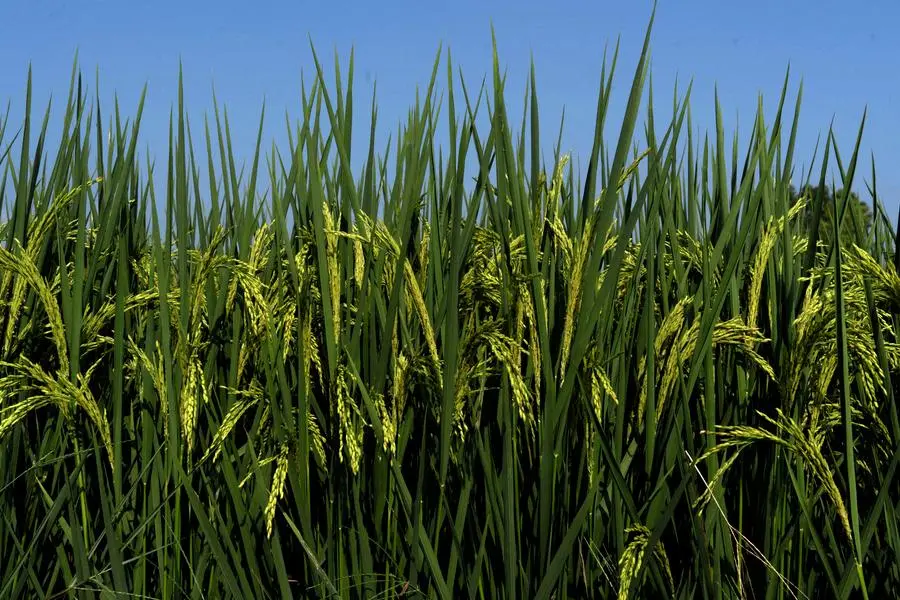PHOTO
India's rice inventories surged to an all-time high of 29.7 million metric tons in November, sources said on Friday, nearly three times the government's target, as export curbs imposed over the past two years bumped up local supplies.
Higher stocks would allow the world's biggest rice exporter to boost shipments without worrying about domestic supplies, which were limited last year and led New Delhi to restrict exports of all grades.
Rice reserves in state granaries totalled 29.7 million tons at the start of this month, up 48.5% from a year ago, said the sources who did not wish to be named in line with official rules.
In the middle of overflowing grain bins, Indian farmers have gathered a record rice crop of 120 million tons from this year's summer season, which accounts for nearly 85% of total rice output.
As the new crop rolls in, stocks at the Food Corporation of India (FCI) - the state stockpiler - are set to increase further in the months to come, raising storage concerns in the world's second-biggest rice producer.
The FCI is expected to buy 48.5 million tons of the new summer-sown rice in the marketing year that began on Oct. 1, up from 46.3 million tons bought from farmers in 2023-24.
"Rice stocks are substantially higher, and stock levels will go up only because of bumper production in the new season," a senior government official said.
This year's copious monsoon rains also prompted farmers to expand planting areas.
Concerned over patchy monsoon rains, India imposed export curbs last year. However, New Delhi allowed exports of all grades except 100% broken rice this year.
Removing export curbs would accelerate exports in the coming months and reduce the government's pressure to procure rice, said B.V. Krishna Rao, an exporter.
Farmers from India's breadbasket states of Punjab and Haryana complain that FCI has slowed down its purchases of the new season rice crop due to storage issues, forcing growers to wait at wholesale grain markets.
Rice stocks have backed up at the wholesale markets, leading to losses for farmers, said Ramandeep Singh Mann, a farmer from Punjab.
Farmers incur extra costs because they are forced to wait at the markets with their crops loaded onto tractor trolleys, and long delays in the open could also spoil the crop, Mann said.
"Seeing the delays in wholesale markets, some farmers have not even harvested their rice crop," said Devinder Sharma, an independent farm food policy expert. "The time is running out for harvests."
(Reporting by Mayank Bhardwaj and Rajendra Jadhav; Editing by Varun H K)





















